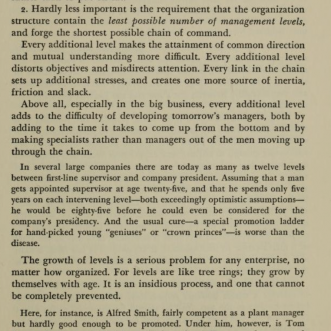
Octopuses
Humans keep most of their brain cells in their heads.
Which means that our bodies, sensing the world around us, have to send messages ‘up the line’ and wait for instructions before they can act. That’s an exaggeration of course, we have automatic reflexes. But on the whole, if I want to move my legs, my brain has to tell them to do it first.
Octopuses have a different model of intelligence. Most of their brain cells are in their tentacles. Which means that each tentacle has its own ‘brain’. Tentacles are autonomous, able to operate independently of the head-brain, and of each other, yet also connected. Tentacles can even have different ‘personalities’ – some are ‘shy’, some are ‘bold’, and so will react differently to the world around them- enriching the information collected and minimising risk to the organism as a whole.
You can probably see where I’m going with this. Over their 155 million years of evolution, octopuses have mastered the art of effective delegation. For them ‘The Boss’ has all but disappeared. 9 brains are better than one.
We could learn something from them.









